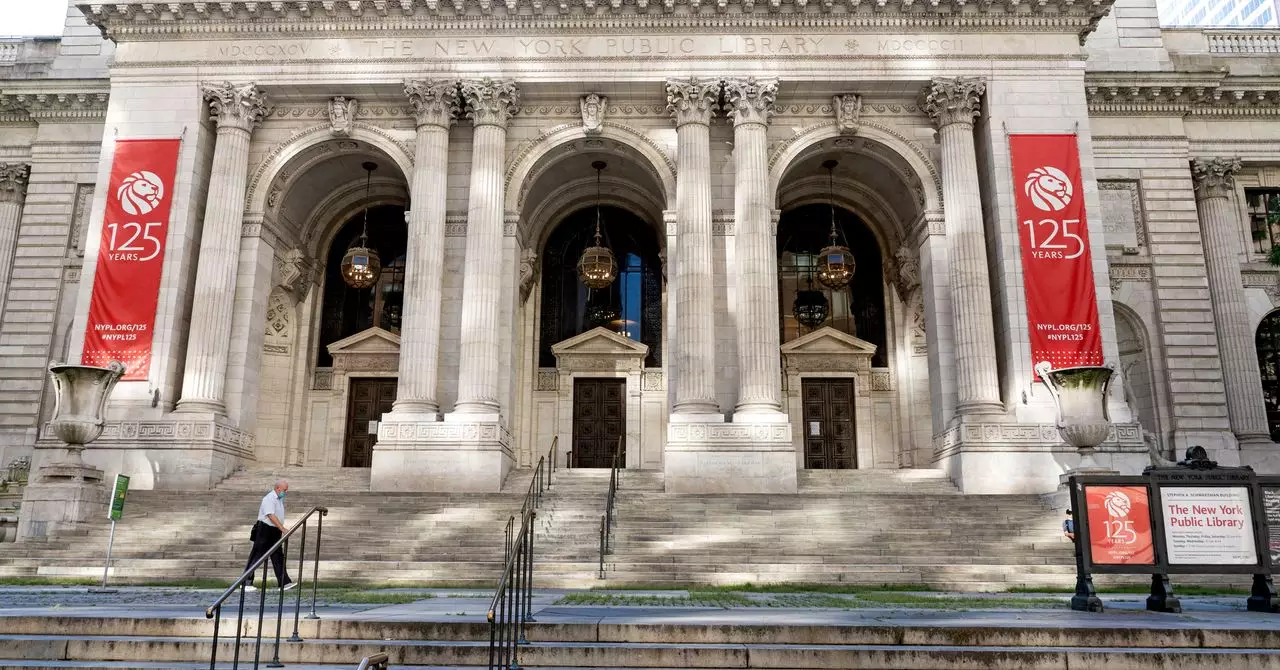The recent actions of the Trump administration, particularly through the collaborative influence of Elon Musk’s so-called Department of Government Efficiency (DOGE), signal a grim future for libraries and museums across America. Once vibrant hubs of knowledge and culture, these institutions are now facing existential threats as funding is slashed, and their operational support is decimated. The moral implications of these cuts extend far beyond mere dollars and cents; they strike at the very heart of community and education.
With the Institute of Museum and Library Services (IMLS) stripped of its resources, the ramifications are immense. The immediate consequences include the halt of student field trips, closure of senior classes, and reduced access to vital digital services like the popular eBook app Libby. For many communities, these aren’t just services; they are lifelines that promote learning, engagement, and intergenerational connections. The decision to essentially gut this federal agency sends a chilling message: cultural enrichment and educational support are secondary to the whims of political maneuvering.
A Dismantled Workforce
In a dramatic and disheartening turn of events, 77 employees at IMLS were abruptly placed on paid administrative leave, effectively severing their connection to the institution they once served diligently. This move came on the heels of President Trump’s appointment of Keith Sonderling, a deputy secretary of labor, as the acting director of IMLS—a move that was likely orchestrated with a specific agenda in mind. The nature of this organizational upheaval not only strips away jobs but also eradicates institutional knowledge and expertise that cannot easily be restored.
The email correspondence from Sonderling emphasized a narrative focused on cultivating national pride and the importance of patriotism through libraries and museums. Yet, behind this facade lies a troubling trend that prioritizes ideological alignment over functional efficacy. By sidelining a majority of the staff responsible for administering critical grants and support programs, the administration disrupts an entire ecosystem designed to foster community growth and education.
The Uncertain Future of Grant Funding
The budget allocated to IMLS has arguably always been modest—less than $1 per person in the U.S. Nevertheless, it translates into significant financial support for libraries and museums, totaling over $269.5 million last year alone. With the current staff absent and no clear directives regarding previously awarded grants, the future of these funds hangs in limbo. Reports indicate that most grants may inevitably be terminated, a deeply worrisome outcome for countless programs that rely on this financial lifeline.
For states like California and Texas, the implications are particularly stark. With funding allocations reaching $12.5 million and $15.7 million respectively, local institutions depend on these resources not only for operational needs but also for innovative projects that enhance community engagement and learning. Programs targeted at fostering creativity and educational opportunities for both children and seniors are now threatened.
Consider the grim fate of an art museum in Idaho that anticipated utilizing $10,350 for student field trips—now a goal that seems increasingly out of reach. Or a North Carolina museum, which set aside $23,500 for workshops aimed at weaving and fiber art for the elderly—efforts to nurture creativity that could now fizzle without the necessary funding and support.
The Value of Cultural Institutions
The broader implications of the administration’s moves hinge on an often-overlooked aspect of American society: the intrinsic value of libraries and museums. These institutions do far more than just store books and artifacts; they are essential to the educational development of individuals and communities at large. They kindle curiosity, support lifelong learning, and act as gathering places where diverse peoples and ideas converge. The decision to defund this sector overwhelmingly undermines the societal progress we ought to be championing.
In a digital age where information is abundant, libraries and museums serve as vital curators of knowledge. They provide equitable access to information and resources, ensuring that all community members—regardless of socio-economic status—have the right to learn and grow. Without institutional support, the very mission of these establishments is compromised, depriving future generations of the cultural literacy that shapes informed citizens.
Ultimately, the current situation signals not just a financial crisis, but a profound societal misstep. As the fabric of community life unravels, we must grapple with the essential question: What kind of society do we want to cultivate, and what role should libraries and museums play within it? With cuts to funding that directly affect our educational and cultural infrastructure, we stand at a crossroads that could redefine cultural engagement in America.

